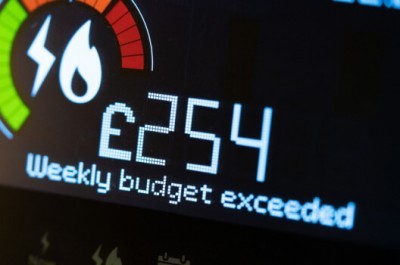What does insolvency mean for your business?
An insolvent company is one that cannot pay its debts. If your business is under severe financial stress, you’re defaulting on debt repayments and you’re constantly being chased and threatened by your creditors (parties you owe money to), it’s likely your business is insolvent.
This will understandably be a very worrying time. However, it’s not always the case that an insolvent company has to be shut down. There are ways to save an insolvent business so it can recover and continue to trade.
How do I know if my company is insolvent?
Not every company that’s experiencing financial problems is insolvent. Almost all businesses face cash flow pressures from time and time. However, if you’re experiencing severe financial stress and you cannot see where the solution is going to come from, insolvency could be a real threat.
There are two tests you can use to determine whether your company is insolvent:
- Cash flow test - Can your business pay its outgoings in full and on time? If you have bills you are unable to pay and debt repayments you cannot make, the likelihood is your company is insolvent.
- Balance sheet test - Does the value of your liabilities exceed the value of your company’s assets on your balance sheet? That should include your contingent and prospective liabilities (those that may not have occurred yet). If it does, the company is deemed to be insolvent.
If your company fails one or both of these tests, you should contact a business debt expert immediately to confirm your company’s financial status. They will also be able to guide you on the next steps.
What are the warning signs that my company is insolvent?
As well as the two insolvency tests, there are signs you’re likely to see on a day-to-day basis that could indicate your company is insolvent. For example:
- You’re on the receiving end of constant creditor pressure and threats of legal action
- You’ve built up tax debts with HMRC
- There are Decrees (County Court Judgments) or Statutory Demands registered against the company
- You’re regularly short of cash
- You’re at the limit of your bank overdraft
- You struggle to pay staff wages every month
- You cannot borrow more money or secure credit from suppliers
- It’s taking an increasingly long time to pay your creditors
- You’re constantly firefighting rather than focusing on growing the business
- You’re struggling to buy stock and production/sales are delayed as a result
Why do I need to know if my company is insolvent?
As a company director, you must be aware of the company’s financial position at all times, and that’s even more important during a period of decline. Recognising that your company is insolvent at the earliest opportunity will help you limit the damage, increase the options that are available to you and protect you from personal liability issues further down the line.
There are also some additional legal duties that apply as soon as you know or should know your company is insolvent. One of those is to act in the best interests of your creditors. That means you should not do anything that worsens their financial position or increases the risk of them incurring further losses.
If you ignore your financial position and continue to trade without any realistic prospect of making a recovery, you could face accusations of misconduct and wrongful trading if the company subsequently fails. That could lead to you being made personally liable for company debts or even being banned from acting as a director for up to 15 years.
What should I do if my company is insolvent?
If you think your company is insolvent or at risk of becoming insolvent, don’t ignore it. Acting quickly will increase your chances of saving the business and reduce the likelihood of adverse consequences for you personally.
The first step is to seek professional debt advice. A free initial consultation with the business debt experts at Scotland Debt Solutions will help you understand your position and the options available to you.
You should also take steps to minimise creditor losses. That may mean ceasing trading to prevent you from worsening the company’s financial position and incurring further debts. On the other hand, it may be beneficial to your creditors to continue trading. Navigating this grey area is where the guidance of a business debt expert really helps.
Depending on your circumstances, you may be able to make a formal repayment agreement with your creditors, called a Company Voluntary Arrangement (CVA), to repay the money you owe them over time. That could give you the breathing space you need to get your business back on track. Alternatively, if the business is no longer viable and cannot be saved, voluntary liquidation could be the best option.
My company is insolvent - I need help!
If you think your limited company is insolvent, it will no doubt be a stressful and confusing time. But you don’t need to navigate it alone. We will discuss your situation with you and provide clear and actionable advice to help you find the best route forward. Arrange a no-obligation consultation at one of our local offices or call our team on 0141 736 0274 for free, same-day advice.













